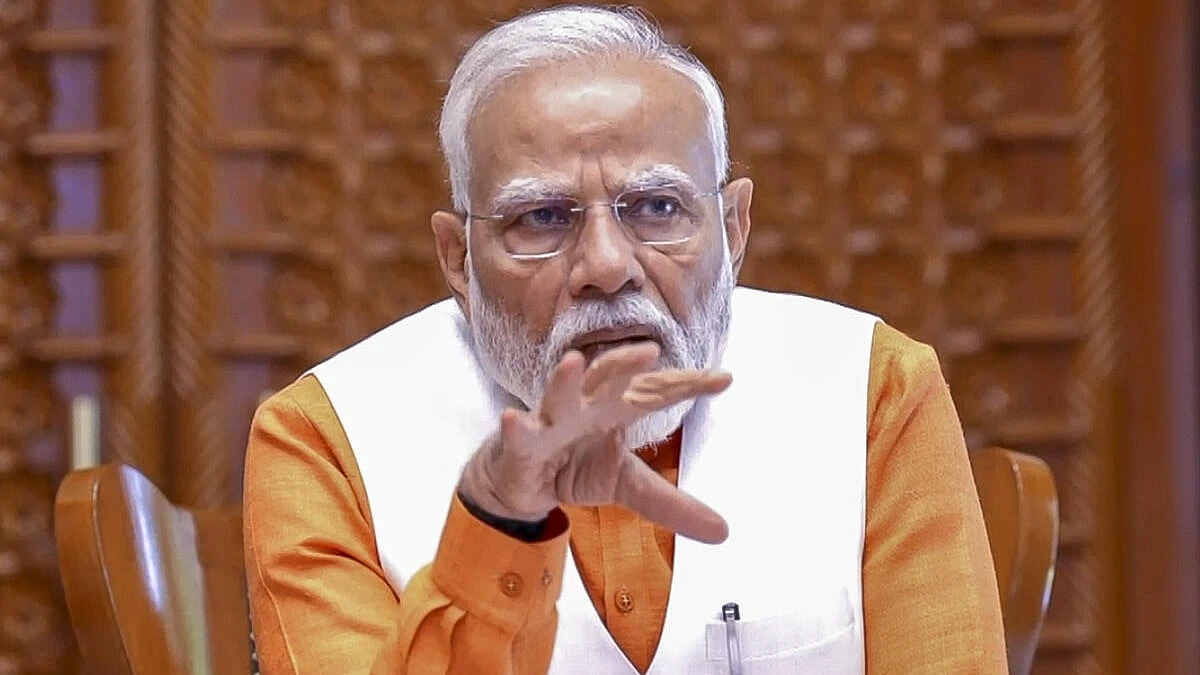As last minute invitations go, this one went down to the wire. After an initial snub, India’s Prime Minister Narendra Modi confirmed that Canada has invited him to the upcoming Group of Seven summit.
President Donald Trump’s trade war is bringing the two nations, whose relations have been strained in recent years, closer together.
India isn’t a member of the G-7 – a grouping of the world’s richest countries comprising the US, UK, Germany, France, Italy, Canada and Japan. But it has been a regular attendee. This will be the nation’s 12th time participating and Modi’s sixth consecutive invitation. Ottawa had originally decided to leave him off the list, a move that raised questions about India’s credibility in the international arena.
But newly elected Canadian leader Mark Carneyhas likely made an important calculation: Getting India onside is crucial as he tries to show that democracies can still function collaboratively, even in a fragmented world order. This comes despite Freedom House classifying the South Asian giant as only partly free, noting that the government led by Modi and the Hindu nationalist Bharatiya Janata Party has presided over discriminatory policies and a rise in persecution affecting Muslims.
Ties between Ottawa and New Delhi deteriorated sharply in recent years, hitting fresh lows after former Prime Minister Justin Trudeau accused India’s government of orchestrating the 2023 killing of Hardeep Singh Nijjar, a prominent Sikh leader, outside a temple in British Columbia. Many Sikhs in the Canadian diaspora want a separate homeland within India for followers of the faith – an ambition that worries security authorities, who have outlawed the movement and view it as a terrorist threat.
New Delhi denied it was involved in Nijjar’s death, alleging that Ottawa has harbored Sikh separatists. The public spat led to tit-for-tat diplomatic expulsions and a freeze in high-level engagements.
Hopes of a thaw were raised after Carney was elected in April as the country’s new prime minister. He’s expressed interest in rebuilding ties with “like-minded countries” as he tries to navigate a difficult relationship with Trump and deal with the fallout from his trade war. That’s led to some positive developments, including discussions about a reset in relations and a recent friendly telephone call between foreign ministers.
Diplomatic priorities appear to have outweighed domestic political considerations. Activists in the Sikh diaspora have argued New Delhi should be kept at arm’s length until the investigation into Nijjar’s death is complete. When asked why he decided to invite Modi, Carney said it “made sense” to have India, the fifth largest largest economy, at the gathering.
He needs all the friends he can get as he tries to navigate a complex economic landscape, while Trump rewrites the rules of multilateralism. Canadian media has indicated leaders of Australia, Ukraine and Mexico have also been invited. The inclusion of the outer ring of G-7-plus partners has become commonplace as a way to get buy-in for major initiatives, particularly among emerging economies.
For Modi, who has long positioned himself as the natural leader of the Global South, the late inclusion will be embarrassing, but one he will survive. Domestically he has received both praise and criticism over the handling of recent hostilities with Pakistan. Diplomats have been on a global charm offensive to build international support for a hardline military approach to Islamabad. Images of him mingling with global heads of state will benefit his standing at home and abroad, feeding into the narrative that he’s respected globally.
For Carney, this is an opportunity to stabilise relations with an increasingly influential New Delhi. He may be signaling a desire to prioritise trade, tech, and climate cooperation over continued isolation. But it’s also a chance to balance Trump’s disruption to the world order, preventing him from dominating the economic narrative.
Regardless of the underlying motivations, Canada’s decision to include India in this gathering is eminently sensible. In an era marked by fractures in the global order, sustaining engagement should be a priority. Modi can seize this opportunity to strengthen bilateral ties, while remembering that influence extends beyond economic size. It hinges on relationships, credibility, and trust – in short supply in today’s volatile political arena. Setting aside differences to collaborate is not just a positive step, it’s essential.
